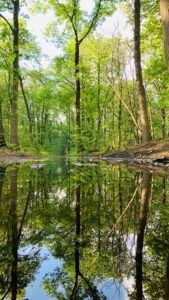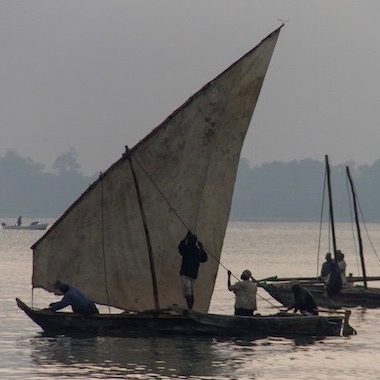Nature-based transformations: Evolving human-nature interactions under changing climate
The potential for nature-based transformation is now acknowledged as essential for transformation to sustainable futures (Díaz et al., 2019; Welden et al., 2021). Yet, beyond generic principles and a rapidly increasing number of place-based case studies, we don’t have a structured, evidence-based understanding of how people can activate nature’s potential for transformation (Colloff et al., 2020), nor of how local ‘bright spots’ of nature-based transformation can be scaled out within and across regions with different contexts and scaled up to transform relevant institutions (Lam et al., 2020).
This quest links to the PECS Transformations to Sustainable Futures theme, where we specifically aim to identify processes and institutions that can help us navigate uncertain pathways to sustainability and to address problems of scaling (up, in, out or deep) local innovations to sustainability.
We and others around the world have analysed place-based cases of nature-based transformation but no synthesis has been attempted of human characteristics which underpin success or failure of local initiatives, including required assets and decision contexts of interacting values, rules and
knowledge (Colloff et al., 2021; Colloff et al., 2017). In addition, while scholarship on the human dimensions of transformation is rapidly growing, this has been largely disconnected from on the ground initiatives of nature-based solutions (Palomo et al., 2021). With a PECS working group we expect to open a space for analysis and deliberation that will be inclusive of multiple experiences and deliver more generic understanding. Our knowledge of PECS’ values and practices indicates that these strongly align with those of TARA.
Key research questions:
- How do or could people work with nature to adapt to climate change through the co-production of Nature’s Contributions to Adaptation (NCA)?
- What values, knowledge and rules drive decision-making on adaptation (including the co-production of NCA) and influence nature-based transformations?
- How can place-based research on nature-based transformations be scaled out/up?
Working Group Coordinators:
- Sandra Lavorel – Laboratoire d’Ecologie Alpine, Université Grenoble Alpes, France
- Bruno Locatelli – Cirad, Université de Montpellier, France
Working Group Participants:
- Elena Bennett – McGill University, Canada
- Enora Bruley – Collectif Perce Neige, Université Grenoble Alpes, France
- James Butler – CSIRO, Australia
- Matthew C. Colloff – Australian National University, Australia
- Emilie Crouzat – INRAE,France
- Houria Djoudi – CIFOR, Indonesia
- Giacomo Fedele – Conservation International, USA
- Maria Felipe Lucía – German Centre for Integrative Biodiversity Research, Germany
- Claudia Munera – Australian National University, Australia
- Iago Otero – University of Lausanne, Switzerland
- Ignacio Palomo – Institut des Géosciences de l’Environnement, CNRS – IRD, France
- Tobias Plieninger – Göttingen University, Germany
- Améline Vallet – AgroParisTech, Université Paris-Saclay, France
Literature:
Colloff, M.J., Abel, N., Gorddard, R., Lavorel, S., Butler, J., Kerkhoff, L.v., Meharg, S., Munera, C., Bruley, E., Fedele, G., Wise, R.M., Dunlop, M., 2021. Adapting transformation and transforming adaptation to global change. Environmental Science & Policy 124, 163-174.
Colloff, M.J., Wise, R.M., Palomo, I., Lavorel, S., Pascual, U., 2020. Nature’s contribution to adaptation: insights from examples of transformation of social-ecological systems. Ecosystems and People 16, 137-150.
Colloff, M.J., Martín-López, B., Lavorel, S., Locatelli, B., Gorddard, R., Longaretti, P.-Y., Walters, G., Van Kerkhoff, L., Wyborn, C., Coreau, A., Wise, R.M., Dunlop, M., Degeorges, P., Grantham, H., Murphy, H.T., Overton, I.C., Williams, R.D., Doherty, M.D., Capon, T., Sanderson, T., Murphy, H.T., 2017. An integrative framework for enabling transformative adaptation. Environmental Science & Policy 68, 87-96.
Díaz, S., Settele, J., Brondízio, E.S., Ngo, H.T., Agard, J., Arneth, A., Balvanera, P., Brauman, K.A., Butchart, S.H.M., Chan, K.M.A., Garibaldi, L.A., Ichii, K., Liu, J., Subramanian, S.M., Midgley, G.F., Miloslavich, P., Molnár, Z., Obura, D., Pfaff, A., Polasky, S., Purvis, A., Razzaque, J., Reyers, B., Chowdhury, R.R., Shin, Y.-J., Visseren-Hamakers, I., Willis, K.J., Zayas, C.N., 2019. Pervasive human- driven decline of life on Earth points to the need for transformative change. Science 366, eaax3100.
Lam, D.P.M., Martín-López, B., Wiek, A., Bennett, E.M., Frantzeskaki, N., Horcea-Milcu, A.I., Lang, D.J.,
2020. Scaling the impact of sustainability initiatives: a typology of amplification processes. Urban
Transformations 2, 3.
Palomo, I., Locatelli, B., Otero, I., Colloff, M., Crouzat, E., Cuni-Sánchez, A., Gómez-Baggethun, E., Grêt-Regamey, A., Jiménez-Aceituno, A., Martín-López, B., Pascual, U., Zafra-Calvo, N., Bruley, E., González-García, A., Fischborn, M., Metz, R., Lavorel, S., 2021. Assessing nature-based-solutions for transformative change. One Earth 4, 1-12.
Welden, E.A., Chausson, A., Melanidis, M.S., 2021. Leveraging Nature-based Solutions for transformation: Reconnecting people and nature. People and Nature 3, 966-977.




